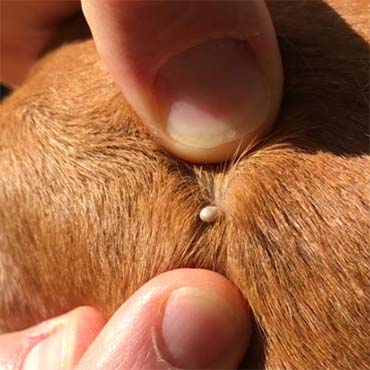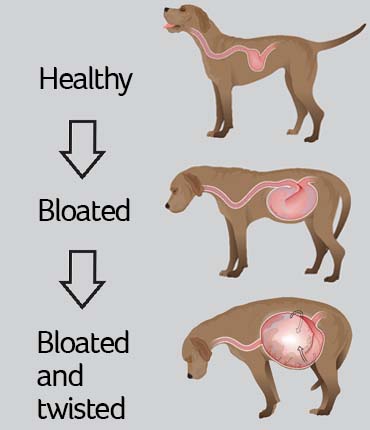Grass pollen allergy in dogs
Grass Pollen Allergy In Dogs. Alternaria - common in spring and fall. Certain breeds of dogs such as Golden Retrievers. Tree pollen allergies are most relevant in the spring season. Grass and weed pollen are warm weather allergens as these plants pollinate in the warmer months including early fall.
 Is Your Dog Suffering From Seasonal Allergies Alldogboots Com From alldogboots.com
Is Your Dog Suffering From Seasonal Allergies Alldogboots Com From alldogboots.com
The pollen is characterized by microscopic grains and is transported from plant to plant by birds bees or wind. Yes dogs can be allergic to grass. Itching is one of the hallmark symptoms of a grass allergy in dogs which will cause your dog to scratch lick and possibly chew his paws. Regular bathing with hypoallergenic shampoos. And these allergies can be quite intense as tree pollen can be flying everywhere. Grass allergies in dogs are caused by pollen which is the powdery yellow material that you see all over everything in the spring and summer.
The pollen count is usually lower at these times.
Dogs might come into direct contact with pollen simply by touching pollen-packed plants with their face or feet. Fortunately by choosing the right grass and with help from your veterinarian and by cleaning your dog after being on the grass you can help treat grass allergies. Yes dogs can be allergic to grass. Grass allergies also known as pollen allergies are the most common type that appear in dogs. And these allergies can be quite intense as tree pollen can be flying everywhere. Similarly it has no relation to the grass underfoot.
 Source: dogster.com
Source: dogster.com
The pollen is mostly spread through direct contact with grass though it also can be transferred indirectly from people bringing it in from the outside. In reality however the actual cause of the grass allergy in a dog is the pollen. Some people use remedies like tea tree oil coconut oil fish oils or other omegas and oatmeal shampoo according to Carvalho. Diagnosing Doggy Grass Allergies. Just like with humans some dogs can develop allergies to grass foods pollen dander or environmental.
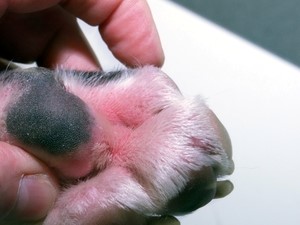 Source: dupontvet.com
Source: dupontvet.com
Some people use remedies like tea tree oil coconut oil fish oils or other omegas and oatmeal shampoo according to Carvalho. Try to work out which pollens your dog is allergic to. Yes dogs can have allergies to pollen. Other common environmental triggers are mold spores and dust or storage mites. Alternaria - common in spring and fall.
 Source: topdogturf.co.uk
Source: topdogturf.co.uk
In reality however the actual cause of the grass allergy in a dog is the pollen. Fungal Spores Some types of fungi that sprout outdoors during the rainy times of the year release spores that cause an allergic reaction in certain dogs. Its a fine powder that is released from tree weeds and grasses year-round though mainly in the spring. Either way a pollen allergy both in dogs and humans is an overactive immune systems reaction to the stuff. The grass pollen refers to the powdery yellow material produced by the male seed plants and is used for fertilization.
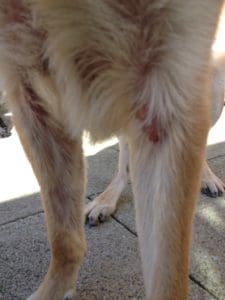 Source: k9cleancoats.co.uk
Source: k9cleancoats.co.uk
Symptoms of grass allergies in dogs. Tree pollen allergies are most relevant in the spring season. Fortunately by choosing the right grass and with help from your veterinarian and by cleaning your dog after being on the grass you can help treat grass allergies. There are several ways your dog can be exposed to grass pollen. And these allergies can be quite intense as tree pollen can be flying everywhere.
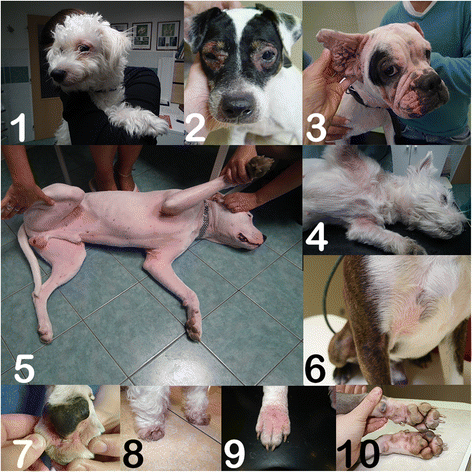 Source: ctajournal.biomedcentral.com
Source: ctajournal.biomedcentral.com
Pollen is the element that fertilizes the flowering plants. There are several different types of airborne mold which can be found on plants decaying vegetation grasses leaves trees and in soil. Similarly it has no relation to the grass underfoot. In reality however the actual cause of the grass allergy in a dog is the pollen. Grass allergies are almost never fatal but they can nonetheless be quite serious.
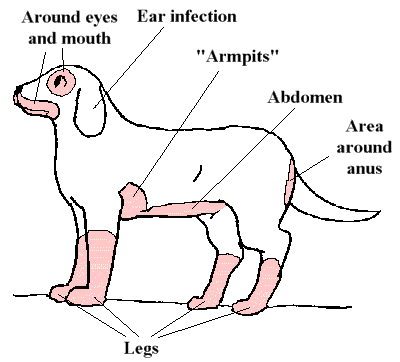
This powder is the substance that flowers and grasses put out to be transported from plant to plant by the birds bees or wind. Causes of Mold Allergies in Dogs. Dog pollen allergy can be triggered by Highly allergic pollen grass like Bermuda grass Johnson grass Redtop Sweet Vernal and Timothy grass. Similarly it has no relation to the grass underfoot. In some cases the allergic reaction that your pet has to grass and grass pollens may be so severe that it requires attention immediately or else it puts him at risk of more serious health concerns.
 Source: alldogboots.com
Source: alldogboots.com
In some cases the allergic reaction that your pet has to grass and grass pollens may be so severe that it requires attention immediately or else it puts him at risk of more serious health concerns. Grass allergies are almost never fatal but they can nonetheless be quite serious. Just like with humans some dogs can develop allergies to grass foods pollen dander or environmental. The pollen is mostly spread through direct contact with grass though it also can be transferred indirectly from people bringing it in from the outside. Similarly it has no relation to the grass underfoot.
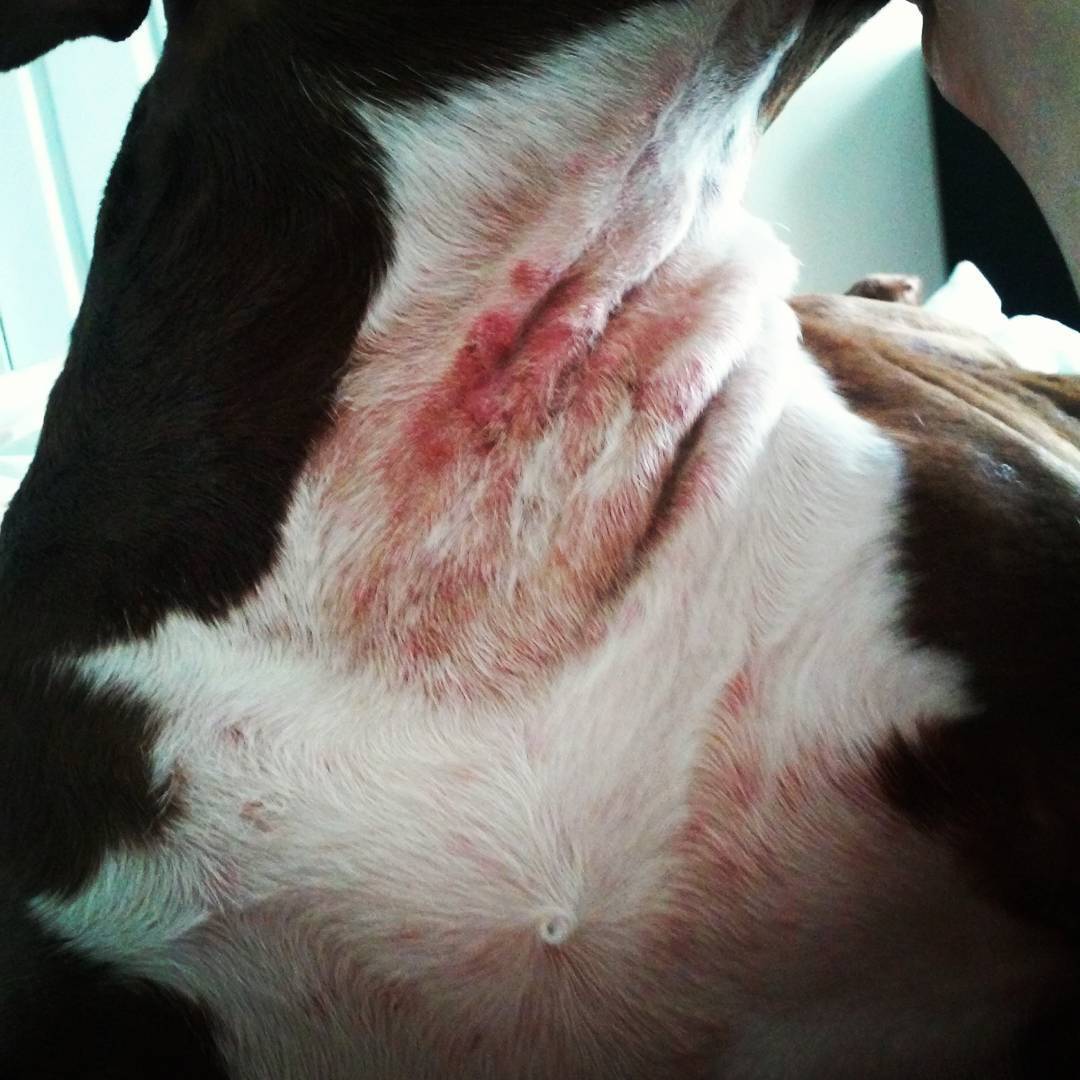 Source: ipupster.com
Source: ipupster.com
In some cases the allergic reaction that your pet has to grass and grass pollens may be so severe that it requires attention immediately or else it puts him at risk of more serious health concerns. This is why it is important to bathe him or her often and wipe down your dogs legs and paws each time they come in from outside. Your dog may absorb these tiny spores in his skin which will cause the allergic reaction in dogs. Grass allergies in dogs can cause your pet quite a lot of discomfort. Similarly it has no relation to the grass underfoot.
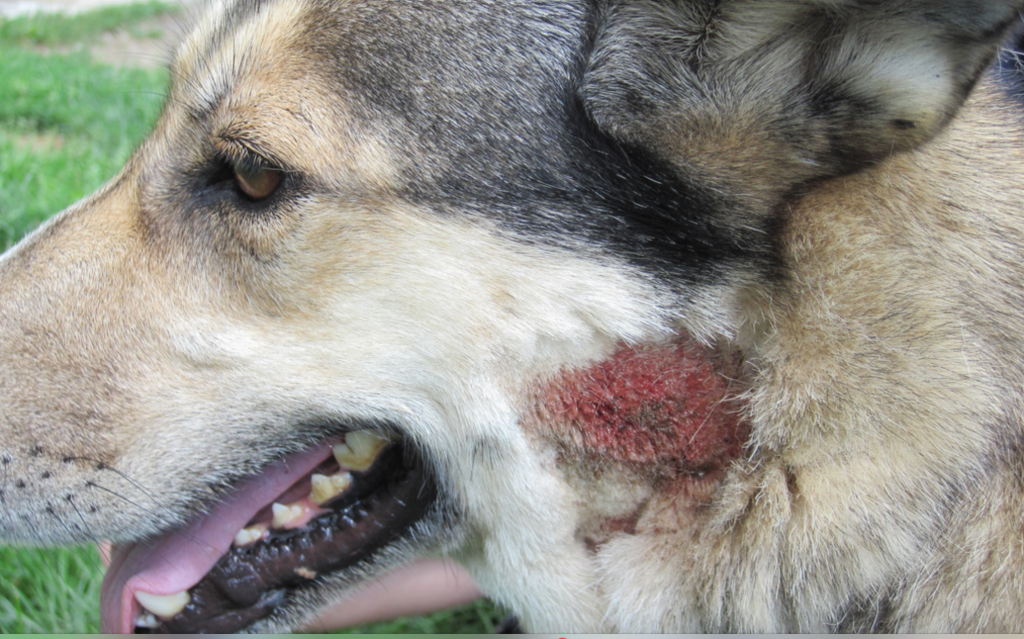 Source: rover.com
Source: rover.com
Youll be able to avoid walking them in areas that might cause a flare up. The pollen count is usually lower at these times. It is not uncommon for dogs to experience allergies to grass pollen. Pit Bulls and English Cocker Spaniels are more vulnerable to an allergic reaction to grass but any dog can develop an allergy to pollen. Dogs might come into direct contact with pollen simply by touching pollen-packed plants with their face or feet.
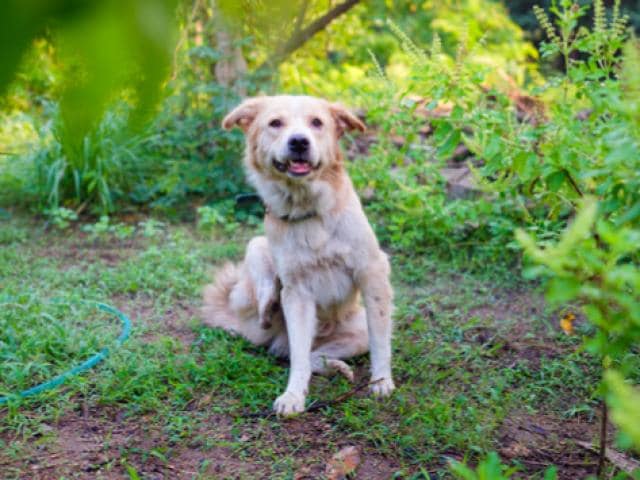 Source: petmd.com
Source: petmd.com
More ways to help. Fortunately by choosing the right grass and with help from your veterinarian and by cleaning your dog after being on the grass you can help treat grass allergies. Yes dogs do get pollen allergies. Plan walkies for before dawn late afternoon or early evening. While in humans allergies to grasses and pollen produce respiratory problems such as sneezing wheezing runny eyes and runny noses in dogs allergic to grass symptoms are more likely to affect their skin.
 Source: chappellevet.ca
Source: chappellevet.ca
Plan walkies for before dawn late afternoon or early evening. Grass allergies in dogs are caused by pollen which is the powdery yellow material that you see all over everything in the spring and summer. Symptoms of grass allergies in dogs. Grass allergies in dogs can cause your pet quite a lot of discomfort. Certain breeds of dogs such as Golden Retrievers.
 Source: australiandoglover.com
Source: australiandoglover.com
Yes dogs do get pollen allergies. There are several ways your dog can be exposed to grass pollen. Try to work out which pollens your dog is allergic to. A veterinarian can diagnose your dog and come up with a successful treatment plan and there are some home remedies that may help him feel better. In some cases the allergic reaction that your pet has to grass and grass pollens may be so severe that it requires attention immediately or else it puts him at risk of more serious health concerns.
If you find this site value, please support us by sharing this posts to your own social media accounts like Facebook, Instagram and so on or you can also save this blog page with the title grass pollen allergy in dogs by using Ctrl + D for devices a laptop with a Windows operating system or Command + D for laptops with an Apple operating system. If you use a smartphone, you can also use the drawer menu of the browser you are using. Whether it’s a Windows, Mac, iOS or Android operating system, you will still be able to bookmark this website.


